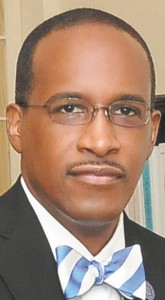HBCU White House meetings receive mixed reviews among attendees
13th March 2017 · 0 Comments
By Stacy M. Brown
Contributing Writer
(NNPA Newswire) – Through the vitriolic, and sometimes venomous, atmosphere of the presidential campaign, a highly-regarded member of then-Republican presidential candidate Donald Trump’s inner circle focused on one issue that was largely ignored: the future of Historically Black Colleges and Universities (HBCUs).
“[Omarosa] Manigault was strategically placing HBCUs high on the agenda of candidate Trump and she kept HBCUs on his agenda,” said Dr. Lezli Baskerville, the president and CEO of the National Association for Equal Opportunity in Higher Education (NAFEO), a membership association for the presidents and chancellors of the nation’s HBCUs.
The White House meetings on February 27 and February 28 with HBCU presidents and chancellors, and the signing of the executive order on HBCUs, grew out of the Manigault’s understanding of the importance of HBCUs and the realization of so many of the nation’s domestic, foreign, security, scientific, technological, research, and innovation goals, Baskerville said.“It happened, because President Trump knows and trusts the leadership and judgment of Omarosa,” Baskerville added.
Baskerville, who also attended the meetings, described them as successful.
“The success must be measured against the reasonable expectations going into the meeting,” said Baskerville. “Relative to the ‘HBCU Fly-In’ on February 28 hosted by Congressman Mark Walker of North Carolina and Senator Tim Scott from South Carolina and others, HBCU presidents were also engaged with leaders of the 115th Congress about inclusion and diversity and about the centrality of HBCUs to American progress, the legislative and appropriations priorities of HBCUs and ways in which the NAFEO-member institutions might move forward and strengthen our relationships with Republican members of Congress.”
Baskerville continued: “NAFEO has consistently advanced the position that federal, state, and private teacher preparation programs should be designed to expand the pool of excellent, diverse teaching professionals, especially African-American, and Hispanic teaching professionals, and Black male teachers.”
While Baskerville left the meetings with Trump encouraged, others were more guarded in their optimism.
“As I understand it, it means that the White House initiative on HBCUs returns to the White House rather than remaining with the Department of Education,” said Loretta Parham, the CEO and director of the Atlanta University Center Robert W. Woodruff Library. “This suggests that the president’s ear will be closer and it suggests that HBCUs will be included in conversations about the economy and education.”
Dr. Walter Kimbrough, president of Dillard University in New Orleans, La., reflected on the meetings and said that not enough time was afforded to discuss pressing issues.
“We didn’t expect to have an audience with the president, and that really, you know—it really was a photo opportunity,” Kimbrough told National Public Radio (NPR). “We didn’t have any significant conversation. I mean he’s working on his [address to Congress] for the night. So, that was okay, but I didn’t go there for that. That wasn’t my intent. It’s just something that happened.”
Kimbrough continued: “I really was interested more in a conversation with [Secretary Betsy DeVos], because she’s new. She doesn’t really know higher education. She doesn’t know HBCUs. And, so this is an opportunity to educate her.”
An opportunity that Kimbrough said was missed.
However, Baskerville argued that it’s important to note that many, like Representative Mia Love, a first-term congresswoman from Utah, participated in the HBCU Fly-In and made a number of thoughtful contributions to the discussion.
“One of the things she said that is telling of who she is at the core is that she is a member of the Republican Study Committee and the Congressional Black Caucus,” said Baskerville. “[Love] quipped that, ‘there are some things that trump political parties.’ This is important, because this is the manner in which the African-American community has always operated.”
Baskerville continued: “We have understood through the years that we need friends in all camps and that we have, ‘no permanent friends, no permanent enemies, just permanent interests.’ We have built and maintained bridges to all houses of power and with all political parties.
“We have had a core group of African-Americans, who have served in leading positions and championed the issues and interests of Black Americans and Blacks around the globe, when Republicans were in the majority [in Congress] and in the White House, and the same is true with Democrats.”
Baskerville credited Manigault for orchestrating the meetings with the HBCU presidents that not only included President Trump, but also Vice President Mike Pence and other top executives in the White House.
“That has not happened previously, to my knowledge,” added Baskerville. “I got the sense that the president and his administration have a better understanding of the issues and interests of HBCUs, of the richness of their diversity, of their offerings, centers of excellence, their output…and, importantly, who their 21st-century leaders are.”
This article originally published in the March 13, 2017 print edition of The Louisiana Weekly newspaper.




